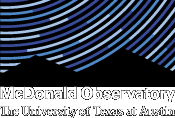Young Giant Planet Offers Clues to Formation of Exotic Worlds
Text courtesy NASA Jet Propulsion Laboratory.
Jupiter-size planets orbiting close to their stars have upended ideas about how giant planets form. Finding young members of this planet class could help answer key questions. For most of human history our understanding of how planets form and evolve was based on the eight (or nine) planets in our solar system. But over the last 25 years, the discovery of more than 4,000 exoplanets, or planets outside our solar system, changed all that.

